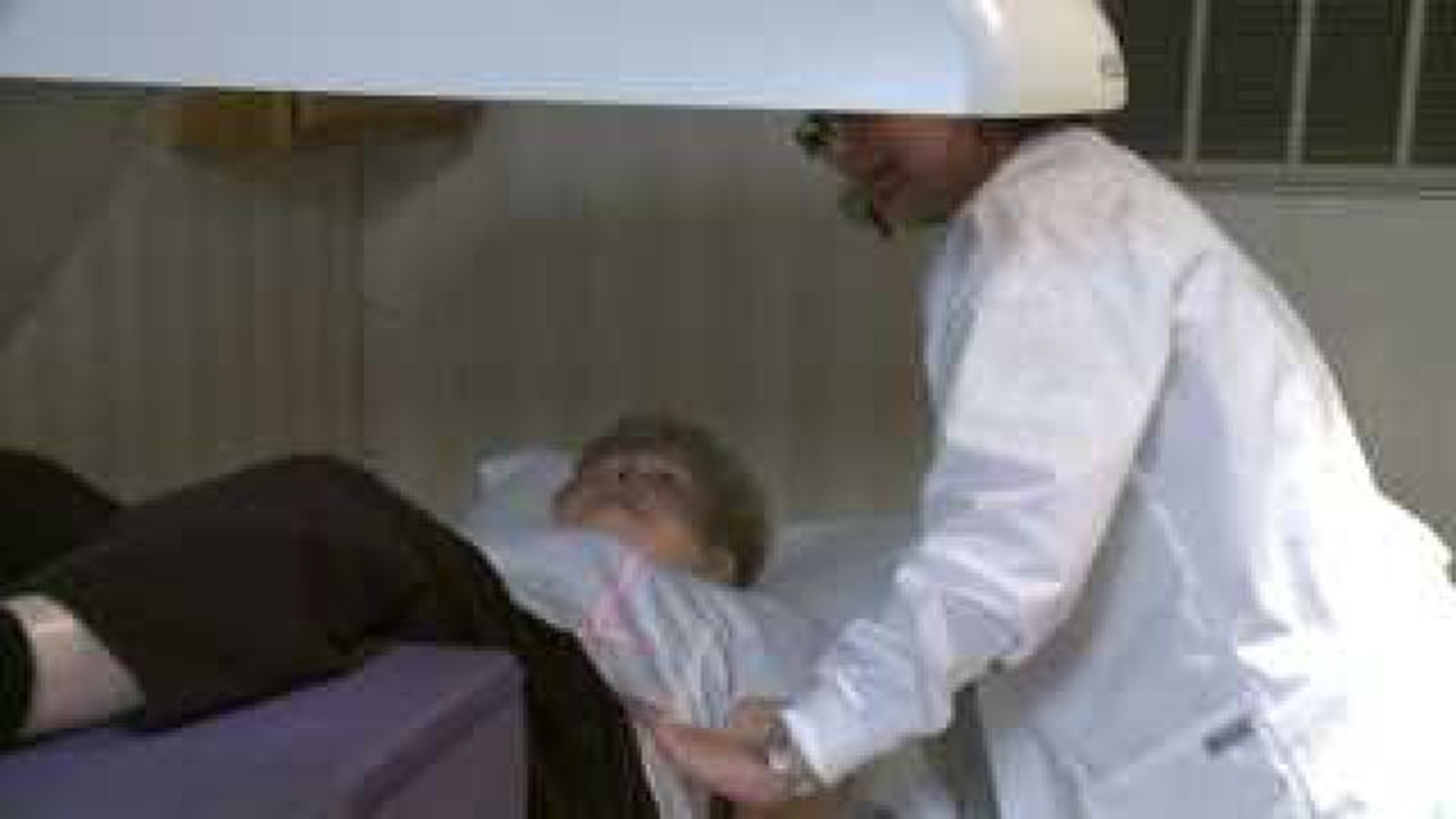You may be doing everything right but still be susceptible to osteoporosis. That's one of the messages officials want to get out today, as we round out May, which is National Osteoporosis Month.
We found 84-year-old Kathleen Cornell getting checked out in a mobile unit parked, on this day, behind a Geisinger clinic in Dallas. It's called a mobile DEXA unit, a traveling way to measure a person's bone density. Cornell says she gets it done about once a year.
Geisinger has two such units, one in the central part of the state and one in the eastern section. Coordinator Jennifer Fernandez says it's a good way to get the scan into the community, so that more people can be screened.
"It's ideally for post menopausal women. But there's another group of patients who are on chronic steriods, or anybody who has had a non-traumatic hip or spine fracture," said Fernendez, an X-ray technician.
The scan itself is easy, requiring just a few minutes and very low radiation. Doctors call it an important tool when it comes to identifying who is most at risk for osteoporosis, which is a common type of bone disease that makes bones fragile and more likely to break. And according to Dr. Thomas Olenginski, a rheumatologist at Geisinger Medical Center near Danville, it's not just women who have to worry.
"We tend to think of old, frail women. But 20-30% of all hip fracture patients are men, and they tend to have more complications after sugery than women," said Dr. Olenginski.
Dr. Olenginski cites a study that says more than nine million Americans have osteoporosis, but many more- 48 million- have low bone mass, which puts them at high risk for developing the disease.
"We're getting more bang for our medical dollar by focusing on patients who have already sustained fractures. There are less of them, and of them, they're more at risk for more fractures," he noted.
Which brings us back to the mobile DEXA unit, which looks to make the scan more accessible, something Kathleen Cornell appreciates.
"It was much easier than getting to the hosptial, to have it done there I thought," she told us.
"You can get everything done in one place," added Fernandez.
There are ways to try to prevent the loss of bone density, such as getting enough calcium and Vitamin D, exercising regularly, and not smoking. Also, if someone in your family has had a non-traumatic bone break, that might be something your family doctor should know.

